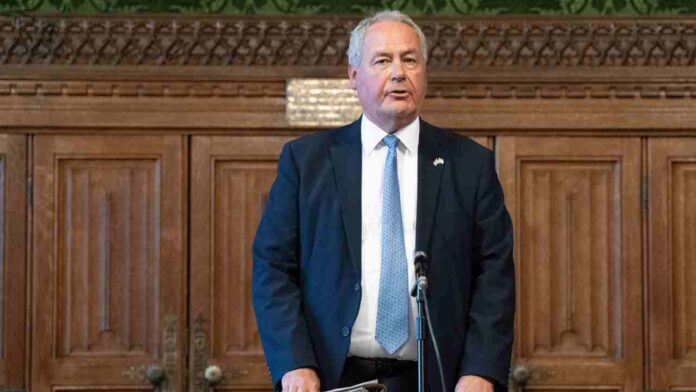Calling the colonial-era atrocity a “stain on British rule,” Conservative MP urges formal apology ahead of Jallianwala Bagh anniversary on April 13.
London [UK], March 29: UK Conservative MP Bob Blackman has reignited calls for a formal apology from the British government to India for the Jallianwala Bagh Massacre, one of the darkest chapters in British colonial history.
Speaking in the UK Parliament on Thursday, Blackman described the 1919 tragedy as a “stain on the British Empire” and urged the government to issue an official statement of apology ahead of its 105th anniversary on April 13.
“Thousands of innocent civilians were killed and injured. The time has come for Britain to formally apologise to the people of India,” Blackman said.
He recounted the harrowing events of that day when General Dyer ordered British troops to open fire on peaceful civilians gathered at Jallianwala Bagh in Amritsar, leaving over 1,500 dead and more than 1,200 injured, according to historical estimates.
“They kept firing until they ran out of ammunition,” Blackman stated, condemning the brutality as a “shameful act that demands acknowledgement and regret.”
He reminded the House that while former Prime Minister Theresa May acknowledged the massacre in 2019 as a “deep stain” on colonial history, it fell short of a formal apology.
“We need more than recognition—we need a statement from the government acknowledging what went wrong and offering a full apology,” Blackman insisted, noting that Parliament will be in recess on April 13.
Another MP echoed his sentiments, calling the massacre “one of the most notorious and shameful episodes in British colonial history”, and pledged to urge Foreign Office ministers to issue a formal statement ahead of the anniversary.
The Jallianwala Bagh massacre, carried out under the command of General Reginald Dyer on April 13, 1919, became a turning point in India’s freedom struggle. The incident sparked outrage across India and the world, with figures like Mahatma Gandhi calling for resistance and Rabindranath Tagore returning his British knighthood in protest.
Today, the Jallianwala Bagh Memorial in Amritsar, Punjab, stands as a solemn reminder of the victims. Bullet-marked walls and the preserved well—where people jumped to escape the gunfire—remain chilling symbols of British colonial brutality.


